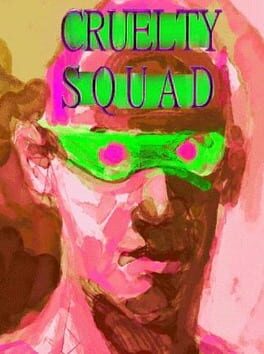Dadhunter
234 Reviews liked by Dadhunter
No More Heroes
2007
When first starting No More Heroes, one finds himself in a fairly typical hack n slash romp, with the game wasting no time putting you in front of a bunch of thugs to slice your way through a straighfoward path to the first boss who faces you in a fast paced 1v1 sword battle. The game starts "in media res", without any context as to why you are facing these enemies or what your motivations as the main character are, a trope we are used to seeing in storytelling and that we presume will be expanded upon the further we go into the narrative. If this is your first impression of No More Heroes, then you have already fallen into it's trap.
It's not until you get further into the 2nd or 3rd mission that things start to feel a bit....off. You find yourself inside plain looking corridors and empty warehouse that repeat themselves ad naseum and beating seemingly random and out of place thugs like baseball players or military troops, and between missions you will be doing extremely mundane and grounded chores and part time gigs until you have earned enough cash to be able to start a new mission. This sense of purposeless progression during gameplay and detachment from the extreme and cartoony violence that happens during combat and the cutscenes is further instigated until the game flat out starts to take away catharsis from you and mock you for it.
All of this would have been meaningless, if Suda didn't intertwine the player with the main character, Travis Touchdown, so closely together. Travis Touchdown fancies himself an over the top anime superhero, climbing his way to the top of the ranks with a Star Wars lightsaber, but in the most downbeat moments of the game one quickly discovers that Travis is just a 20 year old something addicted to videogames and anime, without a steady fullfilling job and with some romantic hang ups to boot. Suda brilliantly makes Travis' frustration and boredom our own through the act of interactivity, and as you find yourself shaking the controller in a jerk off motion to fill your sword's battery to kill the next enemy and putting the wiimote in your ear to hear Sylvia'se sexy voice speaking directly to you, the metaphor is firmly established and unavoidable.
As you reach the final hours of NMH, and the game has completely shattered the 4th wall and destroyed any possibility of a conclusive and satisfying narrative, you will know you have played something special. In an era where videogames are now so preoccupied with artistic recognition, Suda shows that much can be accomplished with so little, and that you never have to sacrifice the medium's strength, the gameplay, to explore deep thoughts and questions about why we play videogames, what we expect to take from them, and why we surrender so much of our lifetime to it.
It's not until you get further into the 2nd or 3rd mission that things start to feel a bit....off. You find yourself inside plain looking corridors and empty warehouse that repeat themselves ad naseum and beating seemingly random and out of place thugs like baseball players or military troops, and between missions you will be doing extremely mundane and grounded chores and part time gigs until you have earned enough cash to be able to start a new mission. This sense of purposeless progression during gameplay and detachment from the extreme and cartoony violence that happens during combat and the cutscenes is further instigated until the game flat out starts to take away catharsis from you and mock you for it.
All of this would have been meaningless, if Suda didn't intertwine the player with the main character, Travis Touchdown, so closely together. Travis Touchdown fancies himself an over the top anime superhero, climbing his way to the top of the ranks with a Star Wars lightsaber, but in the most downbeat moments of the game one quickly discovers that Travis is just a 20 year old something addicted to videogames and anime, without a steady fullfilling job and with some romantic hang ups to boot. Suda brilliantly makes Travis' frustration and boredom our own through the act of interactivity, and as you find yourself shaking the controller in a jerk off motion to fill your sword's battery to kill the next enemy and putting the wiimote in your ear to hear Sylvia'se sexy voice speaking directly to you, the metaphor is firmly established and unavoidable.
As you reach the final hours of NMH, and the game has completely shattered the 4th wall and destroyed any possibility of a conclusive and satisfying narrative, you will know you have played something special. In an era where videogames are now so preoccupied with artistic recognition, Suda shows that much can be accomplished with so little, and that you never have to sacrifice the medium's strength, the gameplay, to explore deep thoughts and questions about why we play videogames, what we expect to take from them, and why we surrender so much of our lifetime to it.
Killer7
2005
"But will anything change? You expect some revolution? Well, a dog can't do shit. Has a dying country ever created anything worth its salt?"
You open the door and hear the telltale giggle of Heaven Smile off in the distance.
Take aim.
Shoot.
Reload.
Turn the corner.
Another Heaven Smile.
Take aim. Rinse. Repeat.
Killer7 is a 2005 railshooter/adventure game about the titular Killer7, a group of assassins hired by the U.S. Government to foil a plot by the UN to place the world under Japanese rule; while also dealing with a rouge terrorist faction of mutant suicide bombers known as the Heaven Smiles. What ensues is a political drama the likes of which defies all explanation honestly. In between discussions about Japan's lack of autonomy as a nation, the long-lasting ramifications American imperialism has had on it's allies, and the cyclical nature of conflict, there's shootouts with an anime girl cosplayer, bullet headbutting, and a chapter dedicated to a super sentai hitsquad. It's this delicate balancing act between the absurd and the profound that makes Killer7 so inherently compelling.
The on-rails control scheme is somewhat obtuse but once you can get used to it you will find one of the most audibly rewarding games you will ever play. The sound design in Killer7 is top-notch: guns sound incredible to fire, the ambient background noises in each level really sell the mood of each location, the telltale laugh of a Heaven Smile is masterfully mixed, letting you know exactly where and how close they are to your location. That little guitar lick that plays every time a puzzle is solved? It's better than sex! It's an utterly engrossing experience that must be played to be believed. Every single sound has been hand-crafted to feel incredibly satisfying to hear, it's insane!
Killer7 is a game that I know I'll still be thinking about for a while. It's a culturally relevant game that burns with indignant anger at the world and it's ways, at the constant empty promises of change, and at the lingering, faceless, agency-lacking shadow of a nation left behind due to the actions of men who do not know how to curb their excess.
"Harman, the world won't change. All it does is turn."
You open the door and hear the telltale giggle of Heaven Smile off in the distance.
Take aim.
Shoot.
Reload.
Turn the corner.
Another Heaven Smile.
Take aim. Rinse. Repeat.
Killer7 is a 2005 railshooter/adventure game about the titular Killer7, a group of assassins hired by the U.S. Government to foil a plot by the UN to place the world under Japanese rule; while also dealing with a rouge terrorist faction of mutant suicide bombers known as the Heaven Smiles. What ensues is a political drama the likes of which defies all explanation honestly. In between discussions about Japan's lack of autonomy as a nation, the long-lasting ramifications American imperialism has had on it's allies, and the cyclical nature of conflict, there's shootouts with an anime girl cosplayer, bullet headbutting, and a chapter dedicated to a super sentai hitsquad. It's this delicate balancing act between the absurd and the profound that makes Killer7 so inherently compelling.
The on-rails control scheme is somewhat obtuse but once you can get used to it you will find one of the most audibly rewarding games you will ever play. The sound design in Killer7 is top-notch: guns sound incredible to fire, the ambient background noises in each level really sell the mood of each location, the telltale laugh of a Heaven Smile is masterfully mixed, letting you know exactly where and how close they are to your location. That little guitar lick that plays every time a puzzle is solved? It's better than sex! It's an utterly engrossing experience that must be played to be believed. Every single sound has been hand-crafted to feel incredibly satisfying to hear, it's insane!
Killer7 is a game that I know I'll still be thinking about for a while. It's a culturally relevant game that burns with indignant anger at the world and it's ways, at the constant empty promises of change, and at the lingering, faceless, agency-lacking shadow of a nation left behind due to the actions of men who do not know how to curb their excess.
"Harman, the world won't change. All it does is turn."
Ruiner
2017
On the foggy streets of Rengkok South, destitute cyborgs loiter around flickering neon lights, spread thin under the towering headquarters of the HEAVEN Corporation. Painted in the rust of body mods and neurotechnology, bodies are thrown into the cybernetic grinder, a new coat of inescapable sickly red floods the alleyways and crosswalks. Bound to black market contracts and transhumanist dehumanization, the denizens of this neo-Purgatory live cheap lives and meet horrid ends.
Cut whole cloth from the script of a thousand cyberpunk stories, RUINER’s world isn’t a unique one. Biotech gone amuck, Capitalism encroaches on it’s hellish end state, and the only person willing to stand up to the one watching over it all is a faceless, nameless psychopath. A story sold to the tune of “whoa, cool robot”, the game wears its influences on its sleeve. A dash of Akira here, a slice of Ghost in the Shell there, some odd Berserk nods to taste. RUINER isn’t an original story by any stretch, but in all reality, you don’t come to it expecting some groundbreaking plot. You expect hyperviolence; grindhouse extremity backlit by LEDs, a crimson wash from a lead pipe brush, to the head splitting tones of weapons-grade darkwave and witch house.
A surface level comparison to Hotline Miami is obvious, I mean, same publisher, same gorehound vibe, same top-down arcade pastiche, complete with timers and letter grades, and a high dose of difficulty to put it above its contemporaries… RUINER and it’s 80s tinged buddy are close, but where the comparison falls apart is in the feel. Don’t get me wrong, there’s a load of mechanical similarities connecting the two, but whereas the former thrives on the minute-to-minute tension of quick, unrelenting death, where a single mistake will spell a splatterhouse finale for our favorite Drive wannabe, RUINER rips through swaths of nameless corporate goons and extremist mercenaries, flipping through an endless array of weapons, blasting, cleaving, and crushing anyone in his path, packing frag grenades, reality bending energy shields, and flash-steps out of a shonen anime. It’s comparing a sociopathic mad lad with a mask fetish to a literal murdering machine, who… also has a fancy mask. Maybe the comparison isn’t so unheard of.
Gameplay wise, RUINER doesn’t stand out as exemplary, sitting somewhere between mediocre and alright depending on the moment-to-moment twists the game throws at you. The one and only area the game fully strives on is it’s presentation. The moment the feel of the world clicked for me was wandering the streets of Rengkok South, a wall of fog casting a smoky haze. As I walked by Time’s Square-style LED billboards, the mournful wails of Susumu Hirasawa’s Island Door cut through the mist, a second of harmony between the soundscape and the world that Reikon Games built out of an obvious love of the genre. There’s very little I loved about RUINER, but the style of the game deserves mention, especially in regards to the soundtrack.
RUINER is deeply flawed, and I don’t see much reason for anyone to stick through until the end: I mostly did because I found a single character cute, and anyone who knows me will guess who in about zero seconds. But as a replication of a setting that’s been done to death and patched together again, it shows such an obvious love for the inspirations surrounding it. That’s not enough to make an interesting game, but it’s enough to make me think fondly of this weird, messy, flawed shooter.
Cut whole cloth from the script of a thousand cyberpunk stories, RUINER’s world isn’t a unique one. Biotech gone amuck, Capitalism encroaches on it’s hellish end state, and the only person willing to stand up to the one watching over it all is a faceless, nameless psychopath. A story sold to the tune of “whoa, cool robot”, the game wears its influences on its sleeve. A dash of Akira here, a slice of Ghost in the Shell there, some odd Berserk nods to taste. RUINER isn’t an original story by any stretch, but in all reality, you don’t come to it expecting some groundbreaking plot. You expect hyperviolence; grindhouse extremity backlit by LEDs, a crimson wash from a lead pipe brush, to the head splitting tones of weapons-grade darkwave and witch house.
A surface level comparison to Hotline Miami is obvious, I mean, same publisher, same gorehound vibe, same top-down arcade pastiche, complete with timers and letter grades, and a high dose of difficulty to put it above its contemporaries… RUINER and it’s 80s tinged buddy are close, but where the comparison falls apart is in the feel. Don’t get me wrong, there’s a load of mechanical similarities connecting the two, but whereas the former thrives on the minute-to-minute tension of quick, unrelenting death, where a single mistake will spell a splatterhouse finale for our favorite Drive wannabe, RUINER rips through swaths of nameless corporate goons and extremist mercenaries, flipping through an endless array of weapons, blasting, cleaving, and crushing anyone in his path, packing frag grenades, reality bending energy shields, and flash-steps out of a shonen anime. It’s comparing a sociopathic mad lad with a mask fetish to a literal murdering machine, who… also has a fancy mask. Maybe the comparison isn’t so unheard of.
Gameplay wise, RUINER doesn’t stand out as exemplary, sitting somewhere between mediocre and alright depending on the moment-to-moment twists the game throws at you. The one and only area the game fully strives on is it’s presentation. The moment the feel of the world clicked for me was wandering the streets of Rengkok South, a wall of fog casting a smoky haze. As I walked by Time’s Square-style LED billboards, the mournful wails of Susumu Hirasawa’s Island Door cut through the mist, a second of harmony between the soundscape and the world that Reikon Games built out of an obvious love of the genre. There’s very little I loved about RUINER, but the style of the game deserves mention, especially in regards to the soundtrack.
RUINER is deeply flawed, and I don’t see much reason for anyone to stick through until the end: I mostly did because I found a single character cute, and anyone who knows me will guess who in about zero seconds. But as a replication of a setting that’s been done to death and patched together again, it shows such an obvious love for the inspirations surrounding it. That’s not enough to make an interesting game, but it’s enough to make me think fondly of this weird, messy, flawed shooter.
Watch Dogs
2014
This review contains spoilers
my daughter niece got killed cause I'm Hackerman, and the only way I can cope is by committing mass murder with my iconic hat.
A constant parade of miserable people doing miserable things in a dreary, boring setting. No reason to play this: Just play Watch Underscore Dogs 2
better post these aged memes on this billboard, so people know that I, Aiden Pierce, am with the kids.
A constant parade of miserable people doing miserable things in a dreary, boring setting. No reason to play this: Just play Watch Underscore Dogs 2
better post these aged memes on this billboard, so people know that I, Aiden Pierce, am with the kids.
Jackass: The Game
2007
jeff tremaine crushes his balls on a fire hydrant and it's up to you to step in and direct a season of jackass
CONS: - misses some of the homoerotic camaraderie that defines the franchise in favour of an assortment of kind of puerile minigames that you chuckle at once or twice before they become grating and lose a lot of their potency. no breakneck editing and no physicality (both of which are replaced by a kind of virtual uncanniness) render a great deal of its charm null. youre just here to see steve-o's tattoo rendered in sixth-generation glory
- bam was contractually barred from appearing so he could not manifest as a force of evil in the game
PROS: - this game is nostradamic in that it predicted twitch streamers and v-tubers years before their inception by often placing the character model of your chosen jackass in the bottom left where they face react to the havoc they wreak. this also functions as a health bar. steve-o looks the happiest ive ever seen a human be, and also the most totally cognizant of his own mortal coil.
- bam was contractually barred from appearing so he could not manifest as a force of evil in the game
CONS: - misses some of the homoerotic camaraderie that defines the franchise in favour of an assortment of kind of puerile minigames that you chuckle at once or twice before they become grating and lose a lot of their potency. no breakneck editing and no physicality (both of which are replaced by a kind of virtual uncanniness) render a great deal of its charm null. youre just here to see steve-o's tattoo rendered in sixth-generation glory
- bam was contractually barred from appearing so he could not manifest as a force of evil in the game
PROS: - this game is nostradamic in that it predicted twitch streamers and v-tubers years before their inception by often placing the character model of your chosen jackass in the bottom left where they face react to the havoc they wreak. this also functions as a health bar. steve-o looks the happiest ive ever seen a human be, and also the most totally cognizant of his own mortal coil.
- bam was contractually barred from appearing so he could not manifest as a force of evil in the game
The biggest theme I could recognize in Metroid 2 is destruction. We take control of Samus on a mission to exterminate every single Metroid on planet SR388. The deeper you venture into the cavernous depths of Metroid 2, the lonelier it becomes. This feeling of isolation, pain and fear is only true to this fan-remake of the original Metroid 2, the latter of which is only slightly less grating than Metroid on the NES. It's impressive how such a mediocre game like Metroid 2 can be marginally improved by the passion and effort of fans.
As shown in the first few sentences of this review, I struggle even calling Another Metroid 2 Remake by its name and instead refer to it as Metroid 2. The reason for which is simple: This is the definitive and most refined version of Metroid 2 that has been released. It feels extremely familiar yet fresh to me, as someone who played Metroid: Zero Mission prior to this one. The controls, UI and movement are not unlike Zero Mission's, albeit with improvements to the menu, map and overall control of Samus.
The world is menacing and dark, getting lonelier and scarier the deeper you descend into SR388. All of this thanks to the amazing work of Milton Guasti, who somehow took a mediocre game and transformed it into something truly enjoyable. Not much to say other than hats off to Milton Guasti once again, who by sheer passion and dedication, crafted the definitive way to experience Metroid 2 that will likely never be topped and stands amongst the best installments of the franchise, without even being official.
As shown in the first few sentences of this review, I struggle even calling Another Metroid 2 Remake by its name and instead refer to it as Metroid 2. The reason for which is simple: This is the definitive and most refined version of Metroid 2 that has been released. It feels extremely familiar yet fresh to me, as someone who played Metroid: Zero Mission prior to this one. The controls, UI and movement are not unlike Zero Mission's, albeit with improvements to the menu, map and overall control of Samus.
The world is menacing and dark, getting lonelier and scarier the deeper you descend into SR388. All of this thanks to the amazing work of Milton Guasti, who somehow took a mediocre game and transformed it into something truly enjoyable. Not much to say other than hats off to Milton Guasti once again, who by sheer passion and dedication, crafted the definitive way to experience Metroid 2 that will likely never be topped and stands amongst the best installments of the franchise, without even being official.
Boyfriend Dungeon
2021
A mess of ideas struggling to hold themselves together. While the concept is cool (dating sim and dungeon crawling), none of the ideas are executed in a satisfying way. The tacked on dungeon crawling and both the scenarios and enemies feel uninspired, with the former being just "shopping mall but fucked up 😈" and the latter "what if phones were fucked up 😈", which feels like a punch in the gut considering they try going a Persona "this dungeon is created by your mind" route but then you enter the dungeon and the first thing you see is a phone with teeth.
The gameplay in the dungeons itself is... serviceable but the skills you gain throughout the game feel wasted considering every enemy dies in like 2-3 hits, making stuff like immobilizing or bleeding them useless.
The dating is also... very rough. Characters throw themselves onto you and every one of them just feels underwritten. I tried very hard to be captivated by them but the focus is all over the place to the point that one of the reveals in a route feels self-parodying. The forced framing of every character encounter being a "date" feels weird and uncomfy personally. Wish the game had scrapped the boring cat route to develop the characters more 'cus it definitely feels rushed, and the games' dates being so lacking makes this game have no legs to stand on.
Speaking of rushed, as many others have pointed out, it definitely feels like the game has cut content. With tons of recipes to be found and only 2 dungeons to get materials in, equipment having repetitious buffs, areas that you never go into, this theme of "facing your fears" being underutilized, and a weak climax, there's a clear indication of this being taken out of the oven too quickly.
Overall, there's just kind of... not much to talk about. The game just falls flat everytime it tries something.
I came in expecting Dream Daddy 2, but considering I left with dissapointment, I wish it was that instead
The gameplay in the dungeons itself is... serviceable but the skills you gain throughout the game feel wasted considering every enemy dies in like 2-3 hits, making stuff like immobilizing or bleeding them useless.
The dating is also... very rough. Characters throw themselves onto you and every one of them just feels underwritten. I tried very hard to be captivated by them but the focus is all over the place to the point that one of the reveals in a route feels self-parodying. The forced framing of every character encounter being a "date" feels weird and uncomfy personally. Wish the game had scrapped the boring cat route to develop the characters more 'cus it definitely feels rushed, and the games' dates being so lacking makes this game have no legs to stand on.
Speaking of rushed, as many others have pointed out, it definitely feels like the game has cut content. With tons of recipes to be found and only 2 dungeons to get materials in, equipment having repetitious buffs, areas that you never go into, this theme of "facing your fears" being underutilized, and a weak climax, there's a clear indication of this being taken out of the oven too quickly.
Overall, there's just kind of... not much to talk about. The game just falls flat everytime it tries something.
I came in expecting Dream Daddy 2, but considering I left with dissapointment, I wish it was that instead
Zueirama
2019
Quake
1996
God damn is this game fun, the new free update remaster thing brings this game to the next level with the visuals and the killer soundtrack from Trent Reznor of Nine Inch Nails and all the expansions being offered for free aaaand amazing optimization on modern hardware with all the options you'd possibly need included.
The fact the game is still only 10$ on steam and a lot less when grabbing it from key selling websites makes this a steal.
Now lets talk about the game because in a lot of ways this is the last classic to come out of the original ID team and its a fantastic send-off for that glory era of the company. This game is 25 and yet hasn't aged a day gameplay wise imo, the movement and combat are really fast, in some ways even faster than in Doom.
I wouldn't say this game is better than Doom but it does fix the one singular issue that I have with it and it's that whenever you aren't shooting its just walking around looking for stupid keycards while trying not to fall asleep, now its...well the same thing but with the improved movement and the higher speed, the time it takes to find that damn keycard is much shorter and when simply walking around is this fun (especially with bunny hopping) you tend to not mind it as much.
The game feels unique even now with its dark fantasy aesthetic and I think the fact that each episode was made by a different person gives each episode a different feel and makes the level design feel distinct between each other. I like the emphasis on having tougher enemies with the trade-off being that there's a lot less than in their previous games.
Idk what much else to say because this is one of those games that speaks for itself, ugh only complaints are that sadly there weren't many bosses (only 2) and the last one is like...c'mon how the fuck was I supposed to figure that one out without a google search?
But even then the boss fight didn't last that long once I figured it out.
All in all, quake rocks, if u haven't played it then now it's the perfect time to jump in and see what this game is all about.
The fact the game is still only 10$ on steam and a lot less when grabbing it from key selling websites makes this a steal.
Now lets talk about the game because in a lot of ways this is the last classic to come out of the original ID team and its a fantastic send-off for that glory era of the company. This game is 25 and yet hasn't aged a day gameplay wise imo, the movement and combat are really fast, in some ways even faster than in Doom.
I wouldn't say this game is better than Doom but it does fix the one singular issue that I have with it and it's that whenever you aren't shooting its just walking around looking for stupid keycards while trying not to fall asleep, now its...well the same thing but with the improved movement and the higher speed, the time it takes to find that damn keycard is much shorter and when simply walking around is this fun (especially with bunny hopping) you tend to not mind it as much.
The game feels unique even now with its dark fantasy aesthetic and I think the fact that each episode was made by a different person gives each episode a different feel and makes the level design feel distinct between each other. I like the emphasis on having tougher enemies with the trade-off being that there's a lot less than in their previous games.
Idk what much else to say because this is one of those games that speaks for itself, ugh only complaints are that sadly there weren't many bosses (only 2) and the last one is like...c'mon how the fuck was I supposed to figure that one out without a google search?
But even then the boss fight didn't last that long once I figured it out.
All in all, quake rocks, if u haven't played it then now it's the perfect time to jump in and see what this game is all about.
Road 96
2021
When I started playing Road 96, I found the premise absurd, themes well meaning but poorly delivered and the cast of characters while colorful, not particularly noteworthy. Having finished the game, my initial impression did not change but I got additional appreciation of its strength despite the shortcomings.
So instead of dunking on its heavy handed political themes I wanna instead highlight why you might wanna pick this up.
The minimalist yet colorful art-style the game uses has become somewhat common in narrative driven indie games but for some reason I never get tired of them. The rich blues and yellows used to paint different locations perfectly capture the vibe of a fleeting moment of dreamlike beauty in a road trip. While some of the locations gets a bit samey, the visual splendor of the it all saves it from fatigue. Complementing that is some striking character design which is appropriately flashy and subdued depending on the character. The random unimportant NPCs suffers from same face syndrome but I can't tell if that was an intentional creative choice. Also while facial animations are not the best, the overall scene setups and designs pulls their weight in delivering the proper emotions.
The soundtrack deserves special mention cause how perfect it is in creating the right vibes for each locations. Mostly consisting of synthwave and pop-folk, they are used to enhance or outright carry scenes. You get the soundtrack cassettes as collectibles and I wish there were more opportunities to listen to them at our own pace. It might be just my own personal tastes but I love pretty much every track and have even kept the playlist saved to listen in the future!
Usually narrative adventure games are mockingly called walking sims (something I don't agree with) cause how little active gameplay challenge they have so something that really surprised me here was the variety in gameplay activities you engage in. Off the top off my head there's 3 types of minigames that are cleverly used at various locations and in addition shooting and driving sections. These pace the experience very well and pick up the slack where the writing might fall short.
I was initially under the impression that the locations and story events would be randomly generated but that's not quite the case here. Every character a set number of events that you see them in order but the order in which you see which character's story is randomized. The most fascinating part is that you don't play 1 set character but multiple characters that interact with the handful of story characters at different points in the story and player characters can even fail!
Your actions at least appears to have an effect on the characters so you have to judge whether you want to do what's right and what's beneficial. I really like the narrative implication of this design in saying that change can only be brought about by the collective small actions of many people.
Overall Road 96 is an impressive attempt at this genre that despite stumbling at the narrative and themes, makes up with sheer charm and sincerity. I'm curious what this studio will create next.
So instead of dunking on its heavy handed political themes I wanna instead highlight why you might wanna pick this up.
The minimalist yet colorful art-style the game uses has become somewhat common in narrative driven indie games but for some reason I never get tired of them. The rich blues and yellows used to paint different locations perfectly capture the vibe of a fleeting moment of dreamlike beauty in a road trip. While some of the locations gets a bit samey, the visual splendor of the it all saves it from fatigue. Complementing that is some striking character design which is appropriately flashy and subdued depending on the character. The random unimportant NPCs suffers from same face syndrome but I can't tell if that was an intentional creative choice. Also while facial animations are not the best, the overall scene setups and designs pulls their weight in delivering the proper emotions.
The soundtrack deserves special mention cause how perfect it is in creating the right vibes for each locations. Mostly consisting of synthwave and pop-folk, they are used to enhance or outright carry scenes. You get the soundtrack cassettes as collectibles and I wish there were more opportunities to listen to them at our own pace. It might be just my own personal tastes but I love pretty much every track and have even kept the playlist saved to listen in the future!
Usually narrative adventure games are mockingly called walking sims (something I don't agree with) cause how little active gameplay challenge they have so something that really surprised me here was the variety in gameplay activities you engage in. Off the top off my head there's 3 types of minigames that are cleverly used at various locations and in addition shooting and driving sections. These pace the experience very well and pick up the slack where the writing might fall short.
I was initially under the impression that the locations and story events would be randomly generated but that's not quite the case here. Every character a set number of events that you see them in order but the order in which you see which character's story is randomized. The most fascinating part is that you don't play 1 set character but multiple characters that interact with the handful of story characters at different points in the story and player characters can even fail!
Your actions at least appears to have an effect on the characters so you have to judge whether you want to do what's right and what's beneficial. I really like the narrative implication of this design in saying that change can only be brought about by the collective small actions of many people.
Overall Road 96 is an impressive attempt at this genre that despite stumbling at the narrative and themes, makes up with sheer charm and sincerity. I'm curious what this studio will create next.
In the opening of the first mission in Kane & Lynch 2: Dog Days, the eponymous duo meet up on the streets of Shanghai. Lynch sticks his hand out for a handshake that Kane does not reciprocate, before Lynch puts his hand down without comment. Lynch offers surface level niceties and makes small talk with Kane, which he responds to with curt refusals and unnecessary aggression. This initially makes Kane look unlikable and selfish, until Lynch drags Kane along against his will for an unrelated personal vendetta, revealing that he's just as selfish and self-serving as Kane is, only dealing with the other because he needs him to get the job done. There is no compassion, there is no bond, there are only two unlikable, selfish men who drag each other down with every self-serving action they take until their shortsightedness destroys whatever they were fighting for in the first place.
Kane & Lynch 2, on paper, sounds like the kind of fun buddy-buddy crime thriller you'd see in a theater. Two down-on-their-luck career criminals with one humanizing aspect each (Lynch's new girlfriend and Kane's estranged daughter) join up for that "one last job", before things go south and our wacky leads are in over their heads in a foreign land, and epic shootouts and action set pieces occur henceforth. However, there is no joy here. The eponymous duo have no camaraderie like you'd expect, only dealing with each other for their own personal gain, but much like a toxic relationship, neither can fully live without the other. There are no rousing speeches, no begrudging acceptance of true friendship, only bitching and moaning about how much everything sucks and how much they despise each other, and yet they continue to fraternize, because who else do they have? They continue to escalate situations to unnecessary heights as they shoot thousands upon thousands of criminals and private military contractors in the concrete jungle of Shanghai. The endless stream of violence without pause or reprise is almost supernatural in a sense. Kane & Lynch are in a hell of their own creation: a drab, eternal labyrinth of urban architecture and endless gunfights in the hostile underbelly of China's criminal underworld. Just as suddenly as it starts, it ends without fanfare or conclusion. We were privy only to the vignette of time the game wanted us privy to, and in a way, maybe it's for the best. Kane & Lynch don't deserve closure.
What makes this plot work is the visual style in which it is presented. The camera is characterized as a perverse, unaddressed third-party observer to the action that unfolds. In cutscenes, the angles are often candid and much too close for comfort, as if the camera is trying to record the action without being seen by the characters in the story. Scenes often start suddenly and end just as abruptly, sometimes mid-dialogue, as if the battery had died before the scene could finish. In gameplay, it shakes as if in someone's hand when you run. Headshots are instantly pixelated out, blood and rain splatter on your shitty camcorder lens, bright lights create lens flare and loud noises such as shouting and explosions peak the audio and ruin the bit rate. When you die, the camera takes a tumble, the audio is suddenly cut-off without fade and the timestamp is presented without comment, before you are instantly thrown back into the action without any pause. We are neither Kane or Lynch, we are simply observers to their reckless and violent actions.
The gameplay is something I admittedly can't give too much comment on, because this is the first Third Person Shooter I've ever actually played, but I will say that it works incredibly well in-tandem with the visual presentation. The guns feel appropriately weighty and have a real OOMPH to them when you fire, alongside the recoil. You have to scramble across arenas scrounging for ammunition while making sure that you aren't getting riddled with bullets by the hundreds of gunmen you'll encounter, who are just as smart as any player, attempting to flank you and take you by surprise if you aren't careful. The cacophony of bullets whizzing by overhead, overpowering the character's speech and assaulting the player's senses makes every firefight intense. The admittedly tedious nature of it all syncs well with the duo's growing exacerbation at the sheer amount of people being thrown at them in the span of the story's 48-hour chronological window.
Kane & Lynch is an ugly, exhausting, visual anathema I had to walk away from constantly due to the sheer over-stimulation I was being bombarded by. But I think it's critical reception (in part due to it's predecessor's controversy), is largely unwarranted. It's a visually striking and unique experience that has yet to really receive the critical reevaluation other games in a similar vein from the 7th console generation received. It's a game very much worth the 4 hour commitment it asks of you.
Kane & Lynch 2, on paper, sounds like the kind of fun buddy-buddy crime thriller you'd see in a theater. Two down-on-their-luck career criminals with one humanizing aspect each (Lynch's new girlfriend and Kane's estranged daughter) join up for that "one last job", before things go south and our wacky leads are in over their heads in a foreign land, and epic shootouts and action set pieces occur henceforth. However, there is no joy here. The eponymous duo have no camaraderie like you'd expect, only dealing with each other for their own personal gain, but much like a toxic relationship, neither can fully live without the other. There are no rousing speeches, no begrudging acceptance of true friendship, only bitching and moaning about how much everything sucks and how much they despise each other, and yet they continue to fraternize, because who else do they have? They continue to escalate situations to unnecessary heights as they shoot thousands upon thousands of criminals and private military contractors in the concrete jungle of Shanghai. The endless stream of violence without pause or reprise is almost supernatural in a sense. Kane & Lynch are in a hell of their own creation: a drab, eternal labyrinth of urban architecture and endless gunfights in the hostile underbelly of China's criminal underworld. Just as suddenly as it starts, it ends without fanfare or conclusion. We were privy only to the vignette of time the game wanted us privy to, and in a way, maybe it's for the best. Kane & Lynch don't deserve closure.
What makes this plot work is the visual style in which it is presented. The camera is characterized as a perverse, unaddressed third-party observer to the action that unfolds. In cutscenes, the angles are often candid and much too close for comfort, as if the camera is trying to record the action without being seen by the characters in the story. Scenes often start suddenly and end just as abruptly, sometimes mid-dialogue, as if the battery had died before the scene could finish. In gameplay, it shakes as if in someone's hand when you run. Headshots are instantly pixelated out, blood and rain splatter on your shitty camcorder lens, bright lights create lens flare and loud noises such as shouting and explosions peak the audio and ruin the bit rate. When you die, the camera takes a tumble, the audio is suddenly cut-off without fade and the timestamp is presented without comment, before you are instantly thrown back into the action without any pause. We are neither Kane or Lynch, we are simply observers to their reckless and violent actions.
The gameplay is something I admittedly can't give too much comment on, because this is the first Third Person Shooter I've ever actually played, but I will say that it works incredibly well in-tandem with the visual presentation. The guns feel appropriately weighty and have a real OOMPH to them when you fire, alongside the recoil. You have to scramble across arenas scrounging for ammunition while making sure that you aren't getting riddled with bullets by the hundreds of gunmen you'll encounter, who are just as smart as any player, attempting to flank you and take you by surprise if you aren't careful. The cacophony of bullets whizzing by overhead, overpowering the character's speech and assaulting the player's senses makes every firefight intense. The admittedly tedious nature of it all syncs well with the duo's growing exacerbation at the sheer amount of people being thrown at them in the span of the story's 48-hour chronological window.
Kane & Lynch is an ugly, exhausting, visual anathema I had to walk away from constantly due to the sheer over-stimulation I was being bombarded by. But I think it's critical reception (in part due to it's predecessor's controversy), is largely unwarranted. It's a visually striking and unique experience that has yet to really receive the critical reevaluation other games in a similar vein from the 7th console generation received. It's a game very much worth the 4 hour commitment it asks of you.
Dog Days, and by relation Dead Money, are both games predated by the notion of violence: Dead Money taking it for granted, a cruel necessity of the genre and it’s inspirations, Dog Days as a meditation of violence entirely, a framing device for something that is less a compelling narrative and more a dive into the commodification and acceptance of violence in digital spaces. Two unfixable men dive headlong into bloodshed for less-than-stable reasons, one fueled by a half-assed savior complex, another locked into this life through violent psychopathy, both completely unfit to fill any sort of heroic role.
Stylistic violence is the bread-and-butter of shooters, so having Dog Days specifically focus on such an abrasive art direction is a very hardline choice. Breaking apart from its contemporaries, the violence isn’t glorified, nor is it treated as some absolute evil that is done by cruel men. It just… happens. The game, in that sense, takes a lot of its stylistic inspiration less from films and games, but more from accident compilations on LiveLeak and BestGore. Keeping with that tone, everything reflects the kind of videos you’d find on the cursed, blighted side of the web: blown out colors leaving darkness in monotone and searing in bright neon signs, artifacting and corruption over any abrupt action, cameras shaking and audio clipping mercilessly as firefights escalate, and particularly gruesome shots are covered in mosaic by some unseen editor. It’s a game where low-resolutions and frame rates are ideal: anything to fit the grainy, lo-fi nature of online video in the late 2000s.
The mechanics do a bit of the lifting to sell the nihilistic vision, for better or for worse. Dog Days doesn’t feature interesting mechanics, satisfying gameplay loops, or, really, any systems worth pointing out. Mediocrity is the name of the game, further showing how the violence on screen isn’t enticing, dramatic, or worthy of excitement. That does mean the game is not very interesting to play for it’s short four hour run time, but I suppose that’s part of the point. The game exists as more of a vibe experiment than an actually entertaining game, and on that it works amazingly.
Kane and Lynch live on deals written in terms they refuse to understand, inked in innocent blood, signed with bullets and bodies. Over the course of ten hours, between two separate games, the only language the pair are fluent in is that of pointless violence, where cruel men and the victims they amass pop into view, cause pain, and see their own life cut short. Mechanically, stylistically, narratively, the life that Kane and Lynch follow is never portrayed as anything less than meaningless, a series stupid games with stupid prizes. Somewhere between bumbling incompetents and ghoulish slaughterers, no one questions their choices, for questioning them would imply any sort of control, a desire to change, ideas incomprehensible to the middle-aged menaces. Wherever they go, people die.
Neither game is great, but the series as a whole is interesting. The short length of Dog Days alone, along with its low price in most places, should be enough of an excuse to at least experience the aesthetic work on display.
Stylistic violence is the bread-and-butter of shooters, so having Dog Days specifically focus on such an abrasive art direction is a very hardline choice. Breaking apart from its contemporaries, the violence isn’t glorified, nor is it treated as some absolute evil that is done by cruel men. It just… happens. The game, in that sense, takes a lot of its stylistic inspiration less from films and games, but more from accident compilations on LiveLeak and BestGore. Keeping with that tone, everything reflects the kind of videos you’d find on the cursed, blighted side of the web: blown out colors leaving darkness in monotone and searing in bright neon signs, artifacting and corruption over any abrupt action, cameras shaking and audio clipping mercilessly as firefights escalate, and particularly gruesome shots are covered in mosaic by some unseen editor. It’s a game where low-resolutions and frame rates are ideal: anything to fit the grainy, lo-fi nature of online video in the late 2000s.
The mechanics do a bit of the lifting to sell the nihilistic vision, for better or for worse. Dog Days doesn’t feature interesting mechanics, satisfying gameplay loops, or, really, any systems worth pointing out. Mediocrity is the name of the game, further showing how the violence on screen isn’t enticing, dramatic, or worthy of excitement. That does mean the game is not very interesting to play for it’s short four hour run time, but I suppose that’s part of the point. The game exists as more of a vibe experiment than an actually entertaining game, and on that it works amazingly.
Kane and Lynch live on deals written in terms they refuse to understand, inked in innocent blood, signed with bullets and bodies. Over the course of ten hours, between two separate games, the only language the pair are fluent in is that of pointless violence, where cruel men and the victims they amass pop into view, cause pain, and see their own life cut short. Mechanically, stylistically, narratively, the life that Kane and Lynch follow is never portrayed as anything less than meaningless, a series stupid games with stupid prizes. Somewhere between bumbling incompetents and ghoulish slaughterers, no one questions their choices, for questioning them would imply any sort of control, a desire to change, ideas incomprehensible to the middle-aged menaces. Wherever they go, people die.
Neither game is great, but the series as a whole is interesting. The short length of Dog Days alone, along with its low price in most places, should be enough of an excuse to at least experience the aesthetic work on display.
NieR Re[in]carnation
2021
thesis: yoko taro is often listed among the foremost auteurs of the medium but the reality is his strengths lie in a kind of prototypical 'video game' method of work, borne out of necessity, that prioritizes collaboration between a consistent set of screenwriters, an unorthodox style of design targeting emotional resonance, and a plethora of unique flourishes specifically aimed at facilitating the empathy, immersion, and connection of its players (researching drakengard 1s development makes this especially apparent - it's arguably not even a yoko taro game in the usually defined sense of the term). his works, when in production, are thwarted frequently by compromise, limitation, and sacrifice - stumbling blocks, all in service of eventually reflecting a well-trodden title which charms on the virtues of its rustic artistry. wear and tear and a heart of gold. this style of development, marked by haste and experimentation and fueled by pure zeal and love for the craft, perhaps reveals why the pillars of video games, the codified monomythic genres and the primordial archetypes and the frequent allusions to popular work, so often impress themselves upon yoko taro games, and why so often his work succeeds in connecting to people where other talent may struggle. the video game of it all, if you will. incidentally, this collaborative style allows for a large breadth of potential interpretation and analysis afforded towards his work, and ive long maintained that a YT game is at its most interesting when it's not about what he intended for it to be about. did the tragedies in nier gestalt sometimes fall flat for you? me too! thankfully that's not what the game is about, at least not to me. in sum: the work of many, each willing and able to leave a fingerprint on the mosaic of development, enriches the product in the long-run, creating a full-bodied textured work of art and contributing immensely to the humanity at the core of these games. if any given chord strikes you as dull, a separate melody will enchant you - that's the nature of YT's games. they're artisan because of what they value and because of how they achieve their mission statement, and especially because of their passion, always demonstrated by the little details in these games. passion will always reveal itself, but so too will a dearth of passion reveal itself.
proof: nier re[in]carnation
if these games worked because of a certain je ne sais quois shared by the collaborative nature of a team in a trying work environment, i don't think my prospective next project would be a game in an exploitative genre where a new team of writers handled an endless barrage of one-note vignettes while YT sat back, nodded halfheartedly at his desk, and tried to string every vignette together using an overarching plot catering to obsessive drakennier fans. just my two cents
proof: nier re[in]carnation
if these games worked because of a certain je ne sais quois shared by the collaborative nature of a team in a trying work environment, i don't think my prospective next project would be a game in an exploitative genre where a new team of writers handled an endless barrage of one-note vignettes while YT sat back, nodded halfheartedly at his desk, and tried to string every vignette together using an overarching plot catering to obsessive drakennier fans. just my two cents


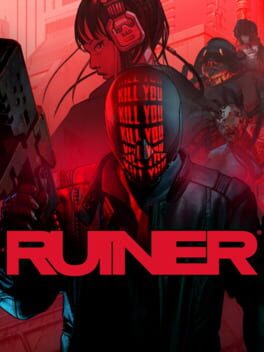
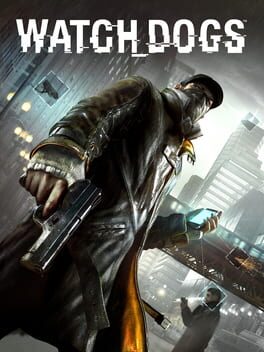
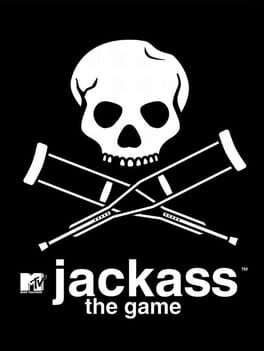
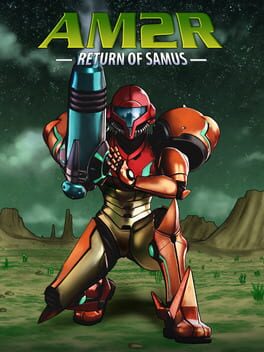
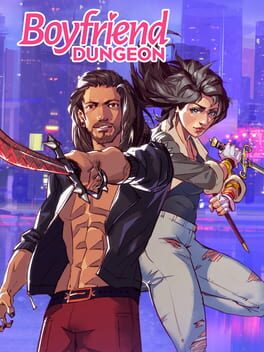
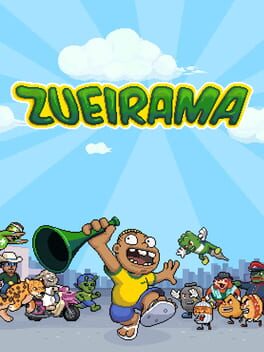
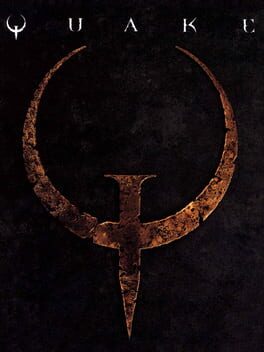

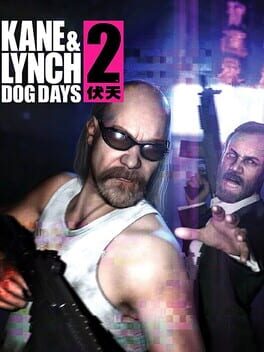
![NieR Re[in]carnation](https://images.igdb.com/igdb/image/upload/t_cover_big/co7bm4.jpg)
